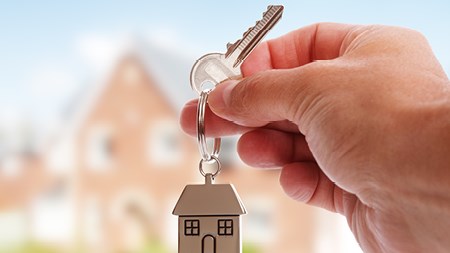You don’t need to have millions in the bank to build a property portfolio. You can get there with one bond and some intelligent investing.
Property has long been considered an excellent, stable vehicle for investment. It has a forced-saving aspect to it, and your investment is unlikely to depreciate. In fact, if you buy carefully and sell at the right time, you’ll probably find you’ve made money.
Many of us imagine that owning a property portfolio is a pipe dream – something only possible for the very rich. That notion would be wrong.
Gone are the days when paying the bond of a single property over 20 years was the only smart thing to do
“Gone are the days when paying the bond of a single property over 20 years was the only smart thing to do,” says Pieter Piek, Sales Manager at Just Property Invest.
Piek explains that if a buyer takes a million-rand, 20-year flexi or access bond, at average current circumstances and interest rates, they could pay the bank +/- R9,800pm for the full 20-year period and eventually own the property at the end of it.
How to start building your property portfolio
But those looking to build a property portfolio could put a paying tenant in the house. For the purposes of this example, let’s say the rental income covers that bond repayment every month. If you are able to add an extra R5,000 to your bond repayments a month, the bond will be paid off in less than half the time as the extra money paid into the bond will be deducted from the capital, saving you interest.
As it’s a flexi/access bond, you are able to withdraw money at any stage. After five years, you could withdraw the excess to purchase a second property for R500,000 without taking out a new bond. The second property, says Piek, should be able to achieve a nett rental income of R4,500.
You are still putting the same amount into your access bond, and you can now add rental income from the second property. You now have two properties paying off one bond and you still have 15 years left in which to pay it off.
In just two-and-a-half years, you can repeat the process, adding another R4,500 rental income to your bond repayments. In about two years time, you will be in a position to purchase an additional unit.
Ten years from the first purchase, the buyer could have four properties and just five years remaining of their bond repayments. Once the bond is paid off, the rental can go into an investment account.
The importance of buying the right investment property
There are some things to think about, however. If you aren’t able to achieve your projected rental or your property stands vacant for a few months, the sums will obviously look different. Be very careful about the properties you purchase, and thoroughly research rentals in the area. “It is a challenge, but not impossible,” says Piek, “to buy a property that can be rented for the full bond repayment. Serious research and good advice is essential when choosing the property.”
“A good rental agent will be very useful to you here,” advises Piek. “If you are tempted to buy a low-priced unit that needs work, bear in mind that a great deal of ongoing maintenance will reduce the amount you can put into your bond. It is entirely up to the buyer, of course, but personally I would look at fairly new builds – you might pay a little more but you can be sure you’re getting new geysers, that the plumbing and wiring have been done recently. Whatever you decide, make sure you get a highly qualified and experienced agent to inspect the properties that you’re interested in. If the agent suggests bringing in a structural engineer, don’t hesitate.”
Property management
This leads Piek to another point: being a hands-on landlord is not for everyone. “Again, look for a good property-management agency that can take all the hassle off your hands. Experienced agents are able to advertise and show the property to prospective tenants, vet their credit-worthiness, present them with standard leases, collect the rentals, deal with some of the body-corporate correspondence and see to all maintenance issues.”
Make friends with a lawyer, a banker and a tax expert
What else should prospective property investors do before purchasing their first rental property? “Besides a great agent, make friends with a lawyer, a banker and a tax consultant,” says Piek. “It’s an old joke in our industry, but like all the best jokes, it’s based on sound advice. So thoroughly educate yourself on all legal aspects and capital tax implications. It’s also essential to set up an emergency fund for unexpected costs not covered by insurance – I advise our clients to aim for about 20% of the value of the property. That said, if you’re following the model above, you could always use the excess money in your access bond for emergencies, but that would change your investment outlook.”
“Remember, you have to live somewhere yourself, so it would be ideal to start the process as young as possible. There will be some sacrifices of course, but nothing good in life comes easy,” says Piek.
And once you've accumulated a few properties, make sure you protect the wealth of your property portfolio.



